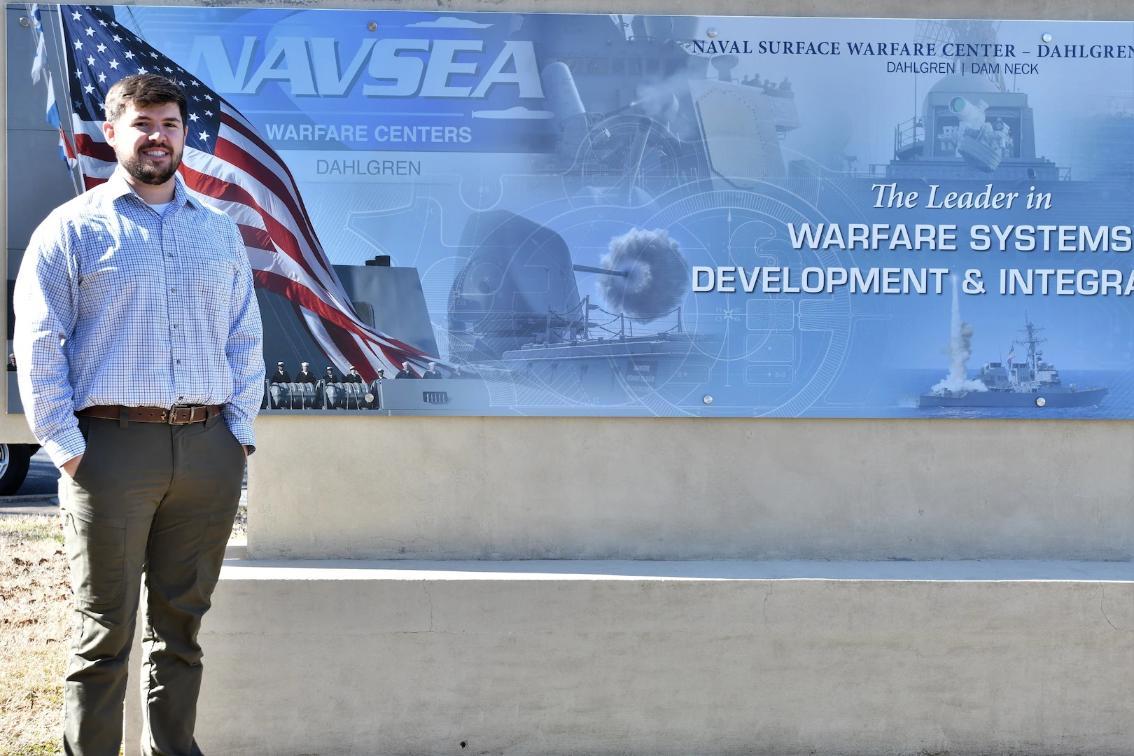

One hundred and twenty-one – that’s how many emails the average person receives every day, according to The Guardian. Truthfully, most of those sent to our personal email accounts end up in the junk mailbox without a second thought. That number dwindles when it comes to work emails. For Joe Gills '15, a computer scientist at Naval Surface Warfare Center Dahlgren Division (NSWCDD), it was an email that popped into his inbox that shifted his focus, enabling him to pursue new opportunities around the world.
“Through the daily emails a couple years ago, I found out about this program run out of NSWC Crane called MTRC, or the mobile technology repair complex. MTRC sets up shops in both combat and non-combat areas to work with special operations forces, providing on-the-ground fabrication and repair support to those special [operations] teams,” explained Gills. “I’m a very mechanically-minded person. I enjoy working with my hands. I grew up on a farm, so I’ve been doing a lot of the repair and fabricating-type engineering work all my life.”
When Gills applied to the MTRC program, his experience on his family’s farm aided his pursuit. “I went to school for math and computer science. When I applied to this program, I told them my background and what I like to do outside of work. They determined that with the training they provide, I would be able to do everything that was required for the position.”
Once accepted in the program, the Longwood University graduate spent two months at NSWC Crane training on different pieces of equipment, like welders, drill presses, smithies, sewing machines and 3D printers – all tools that Gills would use once overseas.
“While I was in Iraq, I was filling this engineering role. It was myself and a contractor running the shop, working with anywhere from six to 10 teams and providing them with whatever engineering, fabrication or repair needs they had,” said Gills. “I loved working with my hands and working outdoors, designing and engineering projects.”
Gills spent six months with boots on the ground in Iraq, qualifying him for a unique recognition – the Secretary of the Defense Medal for the Global War on Terrorism. The medal can only be awarded to civilian employees who served in an eligible combat zone for 30 consecutive days or 60 non-consecutive days since Sept. 11, 2001 in either Operation Enduring Freedom or Operation Iraqi Freedom. It recognizes the contributions and accomplishments of the civilian workforce who directly support the armed forces engaging in operations to combat terrorism in all forms around the globe.
“The entire time I was deployed, I felt like we were providing a much-needed capability to the teams, filling gaps across the board,” said Gills. “One of the big things about this program that I think is extremely valuable is they put the people that are doing the work as close to the customer as possible.”
According to Gills, the close proximity to the end user allowed him and his counterpart to talk with the customer and really understand the problems they encountered.
“This enabled those of us working in the shop to make custom-tailored solutions to actually solve their problem. We went through this engineering and design process, engaging with them early and often and making sure that whatever we handed off to them would ultimately meet their needs,” explained Gills. “I try to do that in my job now, working on different projects. I am constantly thinking about what is really needed and trying to meet with the customer to make sure our product will solve their problem.”
